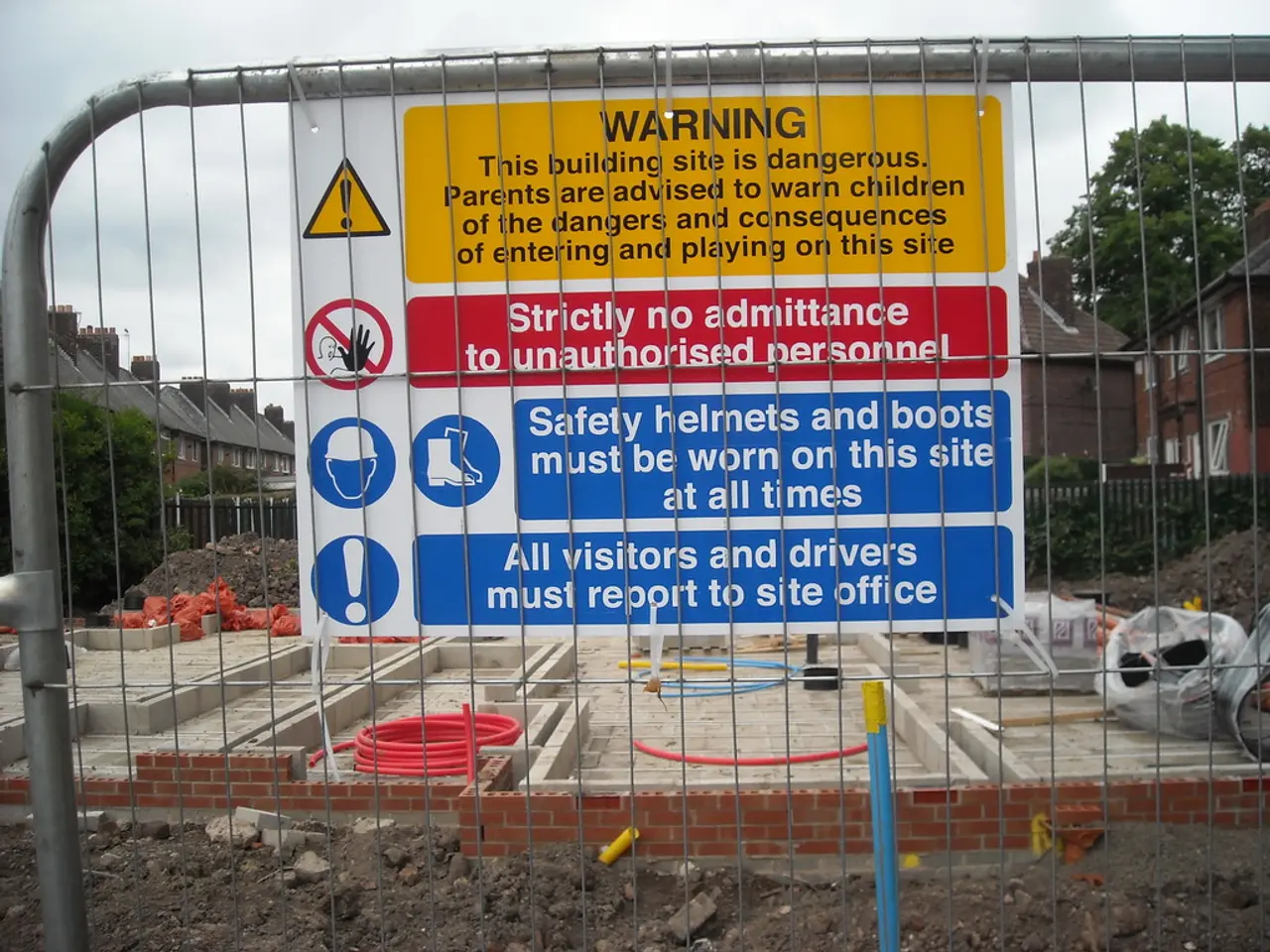Pre-Application Guidance: Understanding Its Purpose and Whether It Grants Permission for Planning
Pre-application advice is a service offered by most local planning authorities (LPAs) in the UK, providing homeowners and developers with an opportunity to discuss proposed projects before submitting a formal planning application. This process, which involves paying a fee, submitting preliminary plans, and receiving feedback from planning officers, can offer significant benefits for those considering a new self-build, extension, or significant renovation.
The pre-application process begins with contacting the LPA and providing initial details about the project. This is followed by a meeting with a planning officer, during which feedback and advice are provided about the likely outcome of a full application, potential issues, and recommended changes. After receiving this advice, it's essential to refine your plans and address any concerns or suggestions from the planning officer before preparing for the full planning application.
Preparing documentation, such as detailed site plans, design and access statements, and impact assessments, is crucial for the full planning application. Key items to include in the pre-application submission are site plans, design ideas, environmental considerations, and a design and access statement.
One of the primary advantages of pre-application advice is the potential savings in time and resources from avoiding a refused planning application. Seeking pre-application advice can save time, reduce costs, and increase the chances of a successful outcome by highlighting potential issues early on.
For projects involving listed buildings, conservation areas, or complicated site conditions, the expertise of a planning consultant can be particularly valuable. A planning consultant can help navigate complex issues, increase the likelihood of a positive outcome during the pre-application stage, and offer reassurance that plans are on the right track.
Pre-application advice is an informal step in the planning process, and the advice provided is just the initial opinion of a junior council officer. However, incorporating the advice into your formal application increases the chances of a smooth approval process and demonstrates to the planning authority that you have taken their recommendations on board.
The fees for pre-application advice can vary significantly, with smaller projects like householder applications typically costing between £50 and £200, and more substantial projects costing between £200 and £1,000. For major developments, such as multiple new dwellings or commercial projects, the fees can range from £1,000 upwards.
Pre-application advice is not just for large-scale developments; it can be equally valuable for home extensions, loft conversions, or adding outbuildings. Tips for attending the pre-application meeting include being clear and concise, asking focused questions, and listening carefully to the feedback provided.
In conclusion, pre-application advice offers a valuable opportunity for homeowners and developers to present their initial plans and ideas to a planning officer before submitting a formal planning application. By addressing potential issues early on, refining plans, and incorporating the advice provided, the chances of a successful outcome are significantly increased.
- Homeowners and developers can benefit from pre-application advice offered by local planning authorities (LPAs) in the UK, as it allows for discussion on proposed projects before submitting a formal application.
- The pre-application process involves contacting the LPA, providing initial details about the project, and meeting with a planning officer for feedback and advice.
- Refining plans and addressing concerns or suggestions from the planning officer is essential after receiving pre-application advice.
- For projects with complexities like listed buildings, conservation areas, or complicated site conditions, the expertise of a planning consultant can be helpful.
- Incorporating the advice provided during the pre-application stage into the formal application increases the chances of a smooth approval process.
- Fees for pre-application advice can vary, with smaller projects costing between £50 and £200, and larger projects costing between £200 and £1,000.
- Pre-application advice is not limited to large-scale developments; it can be valuable for home extensions, loft conversions, or adding outbuildings.
- Key items to include in the pre-application submission are detailed site plans, design ideas, environmental considerations, and a design and access statement.
- By seeking pre-application advice, homeowners and developers can potentially save time, reduce costs, and increase the chances of a successful outcome by highlighting potential issues early on in the project.




